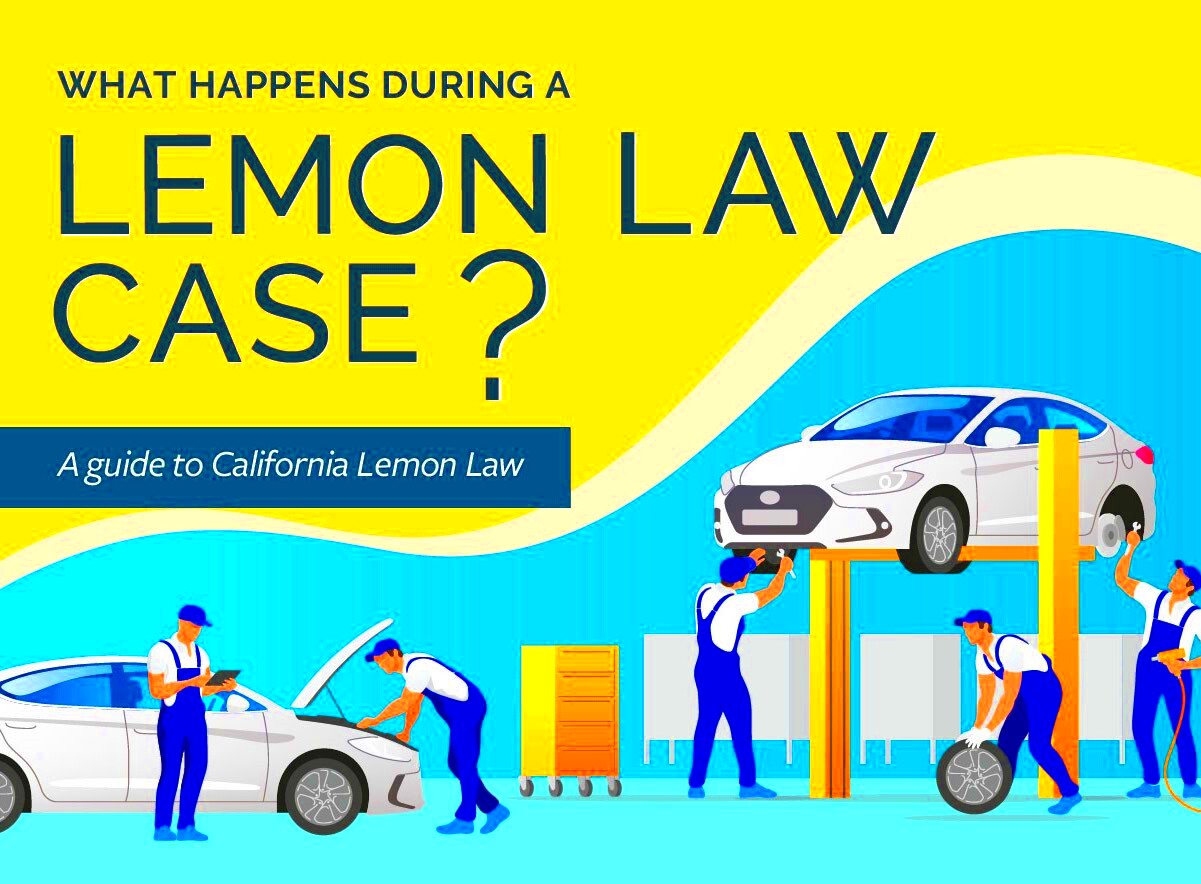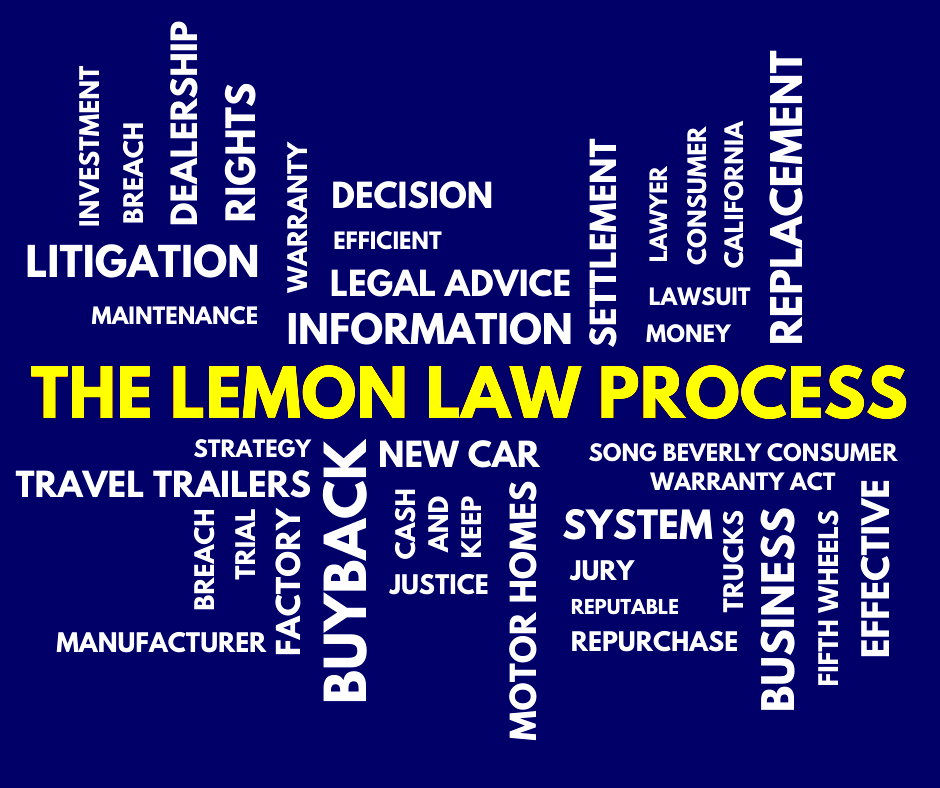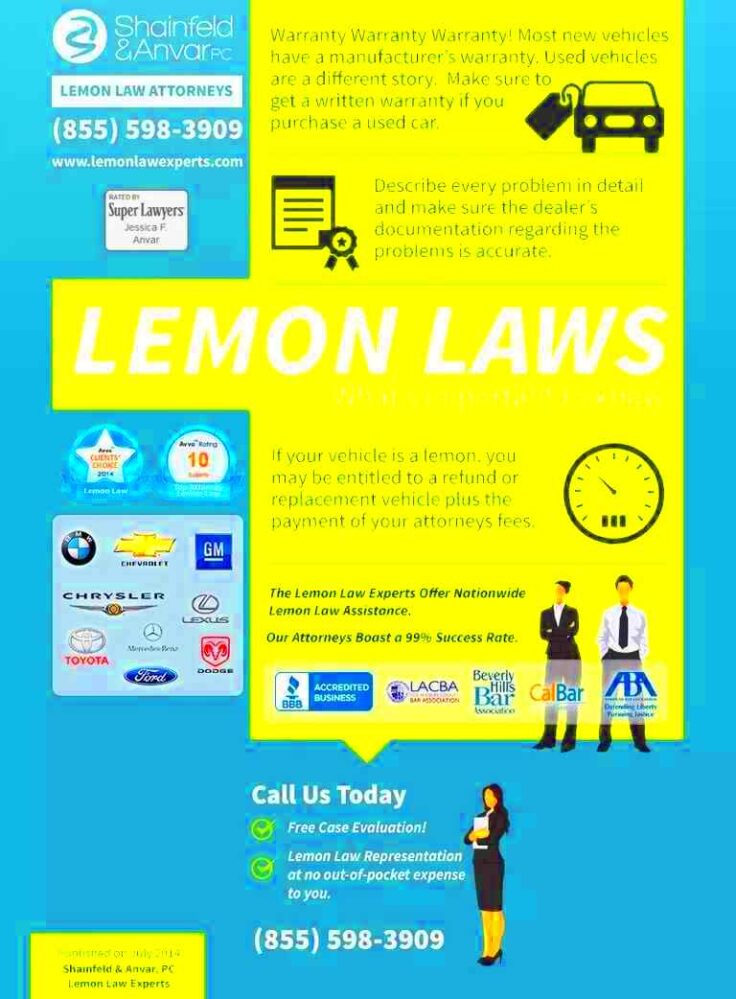Common Lemon Law Cases and Their Outcomes
Lemon laws are intended to safeguard customers from defective cars that don’t meet the requisite quality and performance standards. Imagine purchasing a new car but discover that it has serious problems, which the dealer is unable to rectify. Lemon laws are designed for such scenarios. They protect customers facing frustrating circumstances by providing them with a legal solution. The laws differ across states but their primary aim is to ensure that customers do not keep the faulty vehicle as well as they can ask to be compensated or have it replaced.
Common Types of Lemon Law Cases

A handful of customers may face several common types of lemon law cases. These are some examples:
- New Vehicle Defects: These involve issues with brand-new cars, such as engine problems, faulty brakes, or transmission failures that arise within a specific timeframe or mileage.
- Used Vehicle Issues: Some states also allow claims for used vehicles that come with serious defects, especially if they were sold under a warranty.
- Repeated Repair Attempts: If a vehicle has been taken in for repairs multiple times for the same issue without resolution, it may qualify as a lemon.
- Safety Concerns: Cases where a vehicle has safety defects that make it unsafe to drive are also common in lemon law claims.
Depending on how serious the problem with the car is and which state’s lemon law applies, any of these situations may result in different results.
Factors That Determine a Lemon Law Case

In lemon law cases, several important factors come into play in establishing the validity of a claim:
- Severity of the Defect: The defect must significantly impair the vehicle’s use, value, or safety.
- Repair Attempts: Usually, the consumer must have given the manufacturer or dealer a reasonable opportunity to fix the issue—typically around three attempts for the same problem.
- Timeframe: Most lemon laws have a specific timeframe in which defects must be reported, often within the warranty period or within a certain number of miles.
- Documentation: Keeping detailed records of repairs, communications with dealers, and any expenses incurred is crucial for a successful case.
That means that with the knowledge of this factor, one can easily analyze whatever situation they are in and determine whether or not it gives rise to a right lemon law suit.
Steps to Take if You Believe You Have a Lemon
In case you suspect that your car is a negative asset, you may undergo serious challenges as to the next step. Stay calm; there’s a way forward. If you take the appropriate measures, your chances of winning a successful lemon law claim will increase tremendously. Thus, here is what you need to do:
- Document the Issues: Start by keeping a detailed record of the problems with your vehicle. Include dates, times, and the specifics of each incident.
- Gather Repair Records: Collect all repair invoices and records. This will serve as evidence of your attempts to resolve the issues.
- Notify the Manufacturer: Reach out to the manufacturer and inform them about the ongoing issues. Some states require you to provide them with a chance to fix the problem before proceeding with a claim.
- Consult a Lemon Law Attorney: Consider speaking with a lawyer who specializes in lemon law. They can guide you through the process and help you understand your rights.
- File a Claim: If the issue persists, you may need to file a formal claim. This can often involve arbitration or a lawsuit, depending on your state’s regulations.
When you adhere to these methods, you can handle the scenario and move towards a solution.
Recent Examples of Lemon Law Cases
Lemon law could be understood best by looking at the actual occurrences. There are some recent cases that explain when these laws are enacted:
| Case Example | Issue | Outcome |
|---|---|---|
| Smith v. XYZ Motors | Transmission failure in a new SUV | Settled for a full refund and additional compensation |
| Johnson v. ABC Cars | Repeated engine problems | Replaced vehicle with a new model |
| Lee v. DEF Motors | Electrical issues causing safety concerns | Manufacturer paid for repairs and extended warranty |
This is evidenced by the fact that lemon laws have the potential to be beneficial for customers with cars having major problems.
Potential Outcomes of Lemon Law Cases
There is no way to predict how your lemon law claim will end; however, it is good for one to be aware of the possible results. This is because different cases can yield different outcomes depending on the situation in each specific case. Here are a few of them:
- Refund: You might receive a full refund of the purchase price, including taxes and fees, if your case is successful.
- Replacement Vehicle: In some situations, the manufacturer may agree to replace your defective vehicle with a new one.
- Repair Compensation: If repairs have been made, you might receive reimbursement for those costs.
- Extended Warranty: Some manufacturers may offer an extended warranty as a remedy for defects.
Bear in mind that the exact result is contingent on particulars of your case, such as the kind of flaw and lemon law provisions in your state. Seeking advice from a lemon law lawyer might clarify what should be anticipated in such situations.
How to Prepare for a Lemon Law Claim
So as to represent strong case, it is very critical to undergo preparation of lemon law claim. Therefore, ensure that you are fully prepared to make the process easier. Here is a guide that will help you to get ready:
- Keep Detailed Records: Document everything related to your vehicle’s issues. This includes dates of repairs, conversations with dealerships, and any correspondence with the manufacturer.
- Organize Your Documentation: Create a file that contains all relevant documents such as purchase agreements, repair invoices, and warranty information. Having everything in one place makes it easier to refer to when needed.
- Review State Laws: Understand your state’s lemon law regulations. Each state has different requirements regarding what qualifies as a lemon and the procedures to follow.
- Consult an Attorney: Engaging with a lemon law attorney can provide valuable insights into the process and increase your chances of success.
- Prepare for Negotiations: Be ready to negotiate with the manufacturer. Knowing what you want as an outcome—whether it’s a refund, replacement, or repairs—will help you in these discussions.
By following these actions, you can make a confident and clear lemon law claim.
Frequently Asked Questions About Lemon Law
If you are someone who might have a lemon law claim then chances are that you’ve got various questions concerning it. The following are some of the commonest queries:
| Question | Answer |
|---|---|
| What qualifies as a lemon? | A lemon is typically a new vehicle with a significant defect that cannot be repaired after multiple attempts. |
| Do lemon laws apply to used cars? | In some states, lemon laws can apply to used vehicles, particularly if they come with a warranty. |
| How long do I have to file a claim? | Time limits vary by state, so it’s important to check your state’s specific regulations. |
| Can I handle my claim without a lawyer? | Yes, but having an attorney can help navigate the process more effectively and may lead to better outcomes. |
Below are some questions and answers regarding the lemon law that will clarify some issues surrounding its process, thereby making it easier for you to understand what to expect.
Conclusion on Lemon Law Cases and Their Importance
The lemon laws are important in safeguarding customers against vehicles with defects which may cause huge tension and monetary difficulties; in this light, if a vehicle fails to meet quality standards, then there is an obvious way out for these consumers. As we have seen, being informed and prepared can make a big difference as regards navigating the lemon law process. This means that understanding your rights is fundamental if you happen upon a lemon situation. Regardless of whether it’s a new or used vehicle that you’re handling; comprehending the ins and outs of lemon law will enable one to assert their rights as a consumer. Therefore do not face this issue alone since there are resources and legal aid to assist you through the journey.


